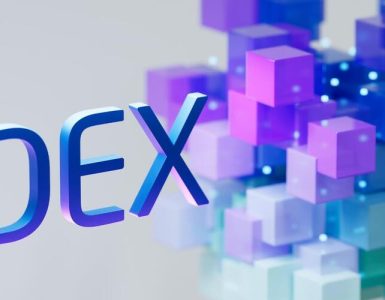Key Takeaways
Indonesia is working on a central bank digital currency, Governor Perry Warjiyo has announced.
Transaction volumes on digital banking platforms has surged since the start of the pandemic.
The U.S. and a number of other countries are also in the process of researching CBDCs.
Share this article
Indonesia has seen a strong increase in digital banking transactions during the Covid crisis. Now, the country will capitalize on its citizens’ growing interest in mobile banking systems by launching its own digital token.
Modernizing Money
Indonesia is launching a central bank digital currency.
Governor Perry Warjiyo announced the move in a streamed news conference Tuesday, revealing that creating a digital currency was one of the Indonesian government’s top priorities. The digital rupiah will capitalize on the growing interest in digital banking platforms, which have seen a 60% increase in transaction frequency since the start of the pandemic.
Central bank digital currencies, known more commonly as CBDCs, have become a hotter topic since the start of the pandemic, with governments worldwide looking for potential ways to offer a replacement to cash.
Bank Indonesia data showed that more than 570 million digital transactions were made in April, highlighting Indonesia’s declining interest in modern alternatives to cash. Warjiyo said:
“Bank Indonesia plans in the future to issue a central bank digital currency, digital rupiah… as a legal digital payment instrument in Indonesia”
The Indonesian government has not provided a timeline yet for the project, nor has it specified what blockchain it would use. Indonesia could choose to use a private blockchain like China’s digital yuan project or a public blockchain like Ethereum. France’s early CBDC experiment used the Tezos network, for example.
Indonesia is currently in the process of banning cryptocurrencies as a transaction method, even though citizens can trade them on exchanges. This legislation will surely remain in place as the government encourages the use of their own digital currency for transactions.
Indonesia isn’t the only country that’s been looking into CBDCs more actively this year. The UK has established a CBDC Taskforce, while The Bank of Japan has started trialing a digital yen.
Last week, too, Jerome Powell announced that the Federal Reserve would be looking into the benefits and drawbacks of digital currencies as “a complement to, and not a replacement of, cash” and commercial bank deposits. “The design of a CBDC would raise important monetary policy, financial stability, consumer protection, legal, and privacy considerations and will require careful thought and analysis—including input from the public and elected officials,” he said.
Disclosure: At the time of writing, the author of this feature owned BTC, ETH, and several other cryptocurrencies.
This news was brought to you by Phemex, our preferred Derivatives Partner.
Share this article
The information on or accessed through this website is obtained from independent sources we believe to be accurate and reliable, but Decentral Media, Inc. makes no representation or warranty as to the timeliness, completeness, or accuracy of any information on or accessed through this website. Decentral Media, Inc. is not an investment advisor. We do not give personalized investment advice or other financial advice. The information on this website is subject to change without notice. Some or all of the information on this website may become outdated, or it may be or become incomplete or inaccurate. We may, but are not obligated to, update any outdated, incomplete, or inaccurate information.
You should never make an investment decision on an ICO, IEO, or other investment based on the information on this website, and you should never interpret or otherwise rely on any of the information on this website as investment advice. We strongly recommend that you consult a licensed investment advisor or other qualified financial professional if you are seeking investment advice on an ICO, IEO, or other investment. We do not accept compensation in any form for analyzing or reporting on any ICO, IEO, cryptocurrency, currency, tokenized sales, securities, or commodities.
See full terms and conditions.
CBDCs Will Replace Private Stablecoin Tether, Central Bankers Say
Speaking at the annual ECB Forum on central banking, heads of the three central banks said that they are actively exploring the idea of a CBDC. Some predict it will…
What Are Non-Fungible Tokens (NFTs)?
Tokenization is well-suited for commodities like fiat currencies, gold, and physical land. A fungible asset’s representation on blockchain makes commodities tradable 24/7 via borderless and frictionless transactions. Fungible goods are…
After the World’s First CBDC, China Now Wants to Build a Blockch…
In a 145-page document, the Beijing municipal administration presented a two-year roadmap for a blockchain-based programmable governance model. More than 100 government services in China are already using blockchain technology….
“Be Right, Not First,” Says Fed Chairman Powell on a Digit…
“We have not made a decision to issue a CBDC,” said Fed Chairman Jerome Powell in his speech during today’s International Monetary Fund (IMF) event devoted to the cross-border payments….




